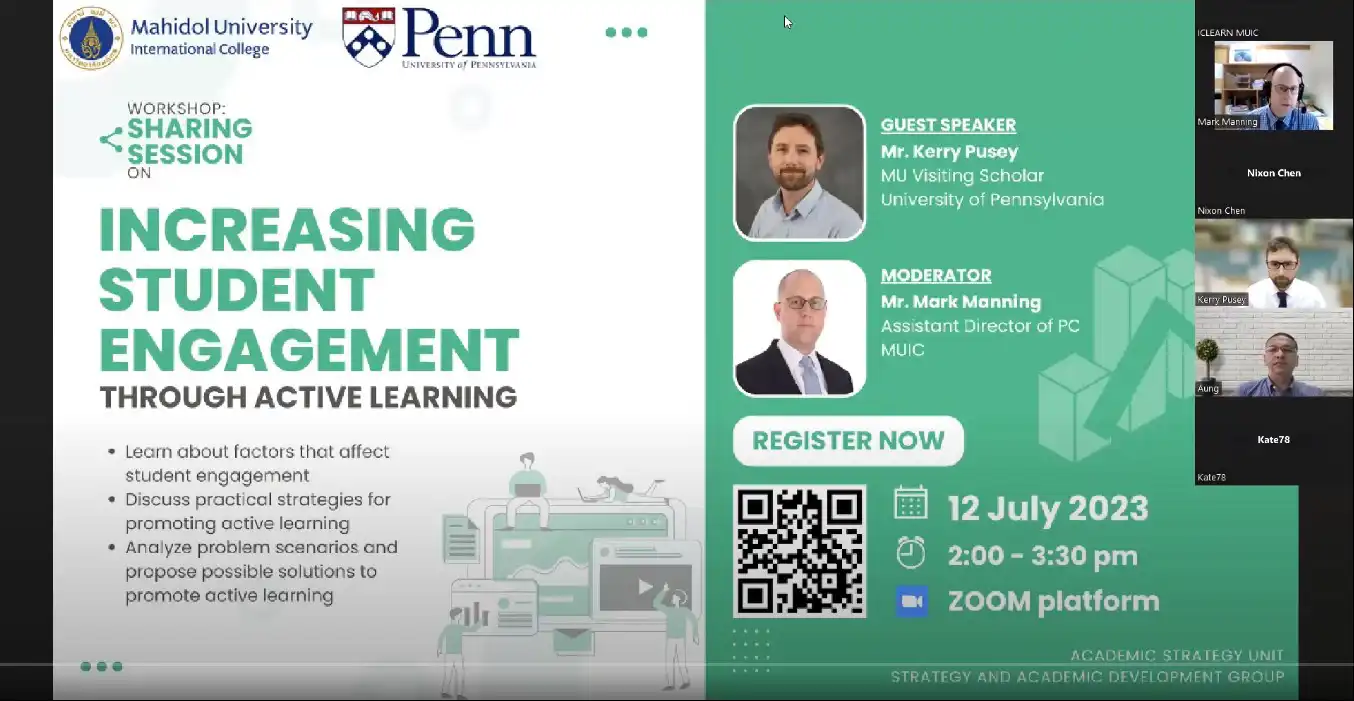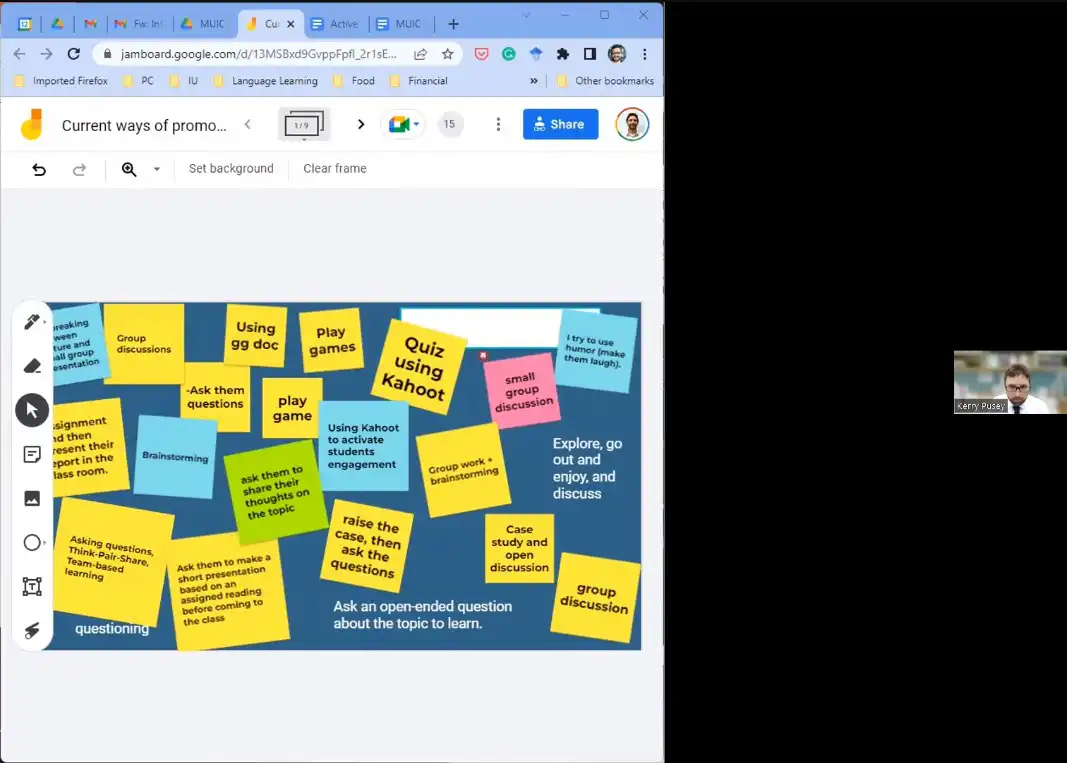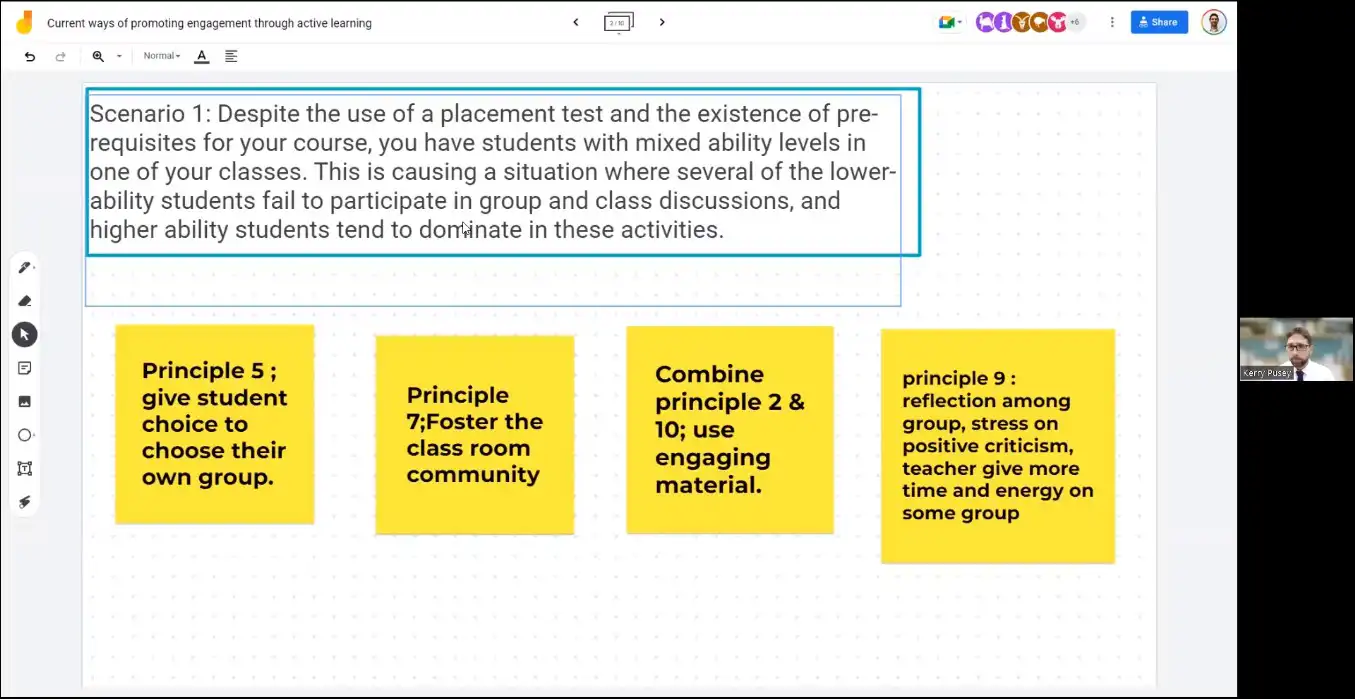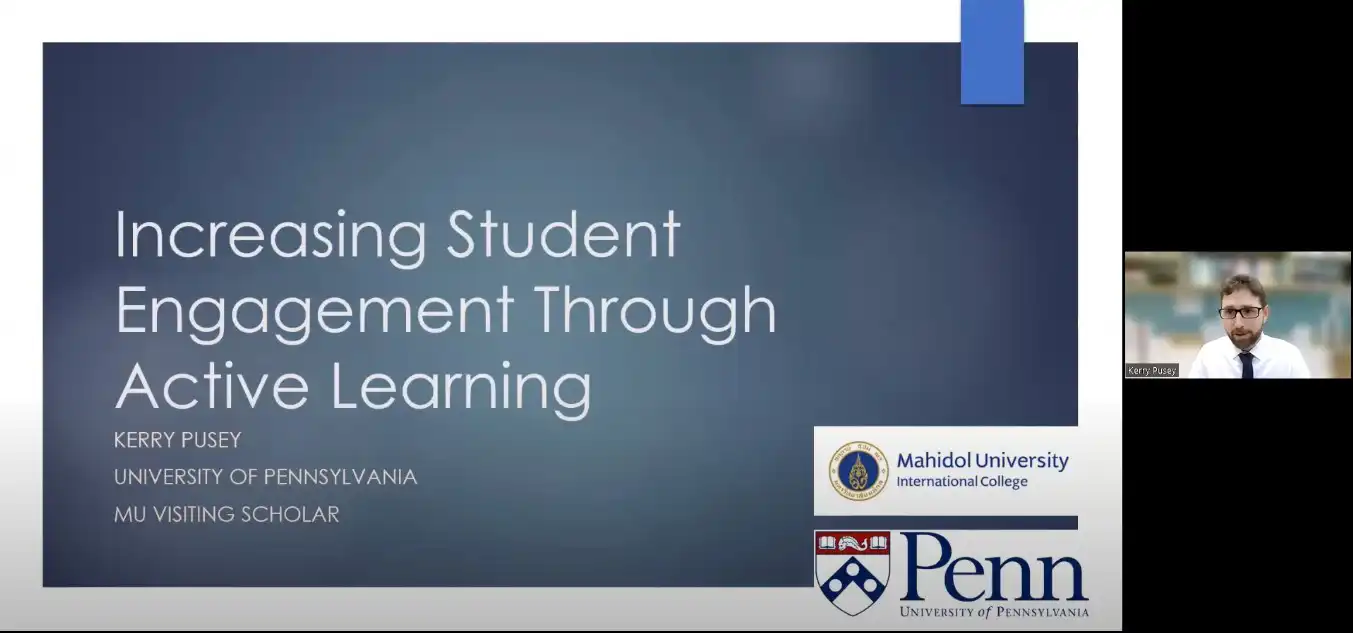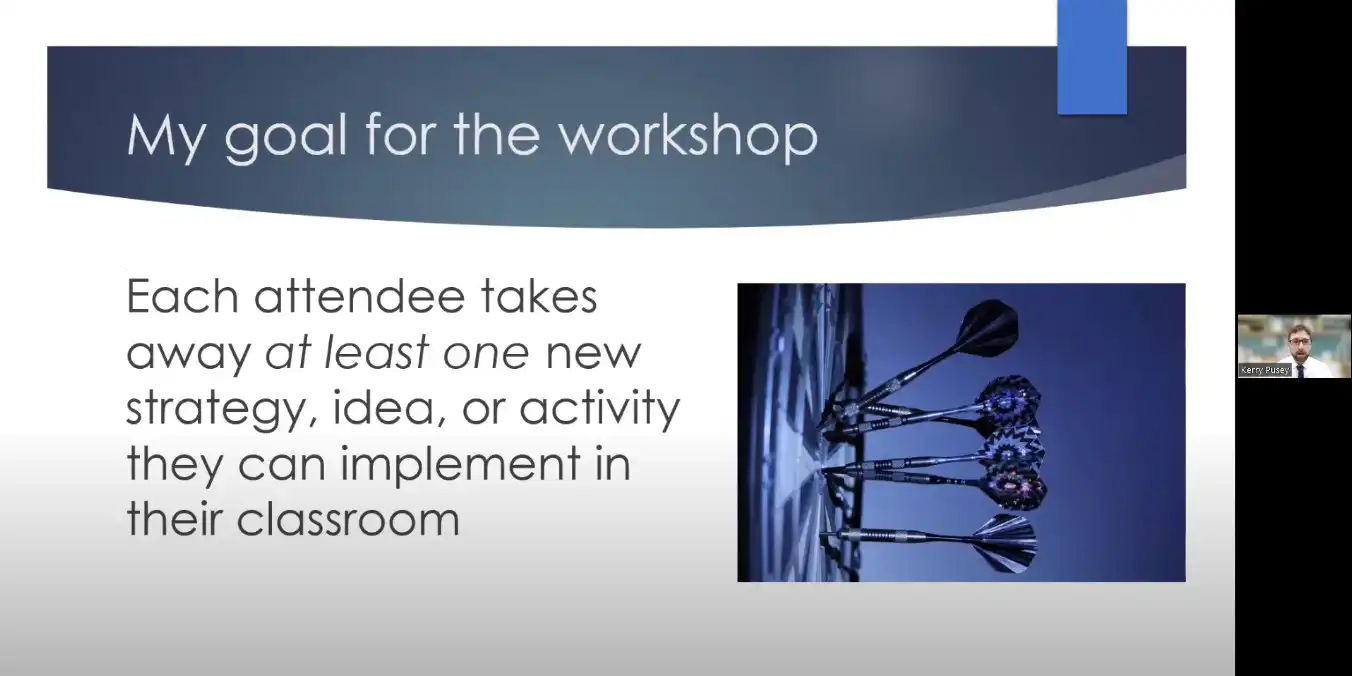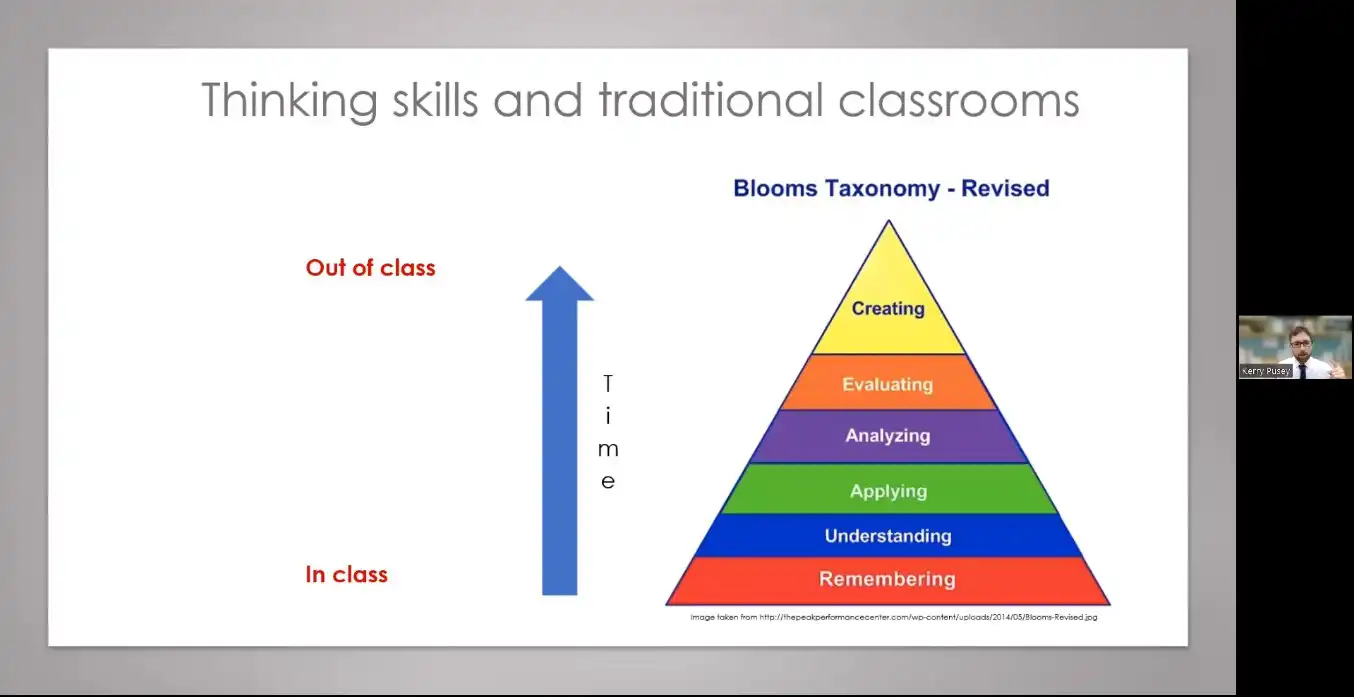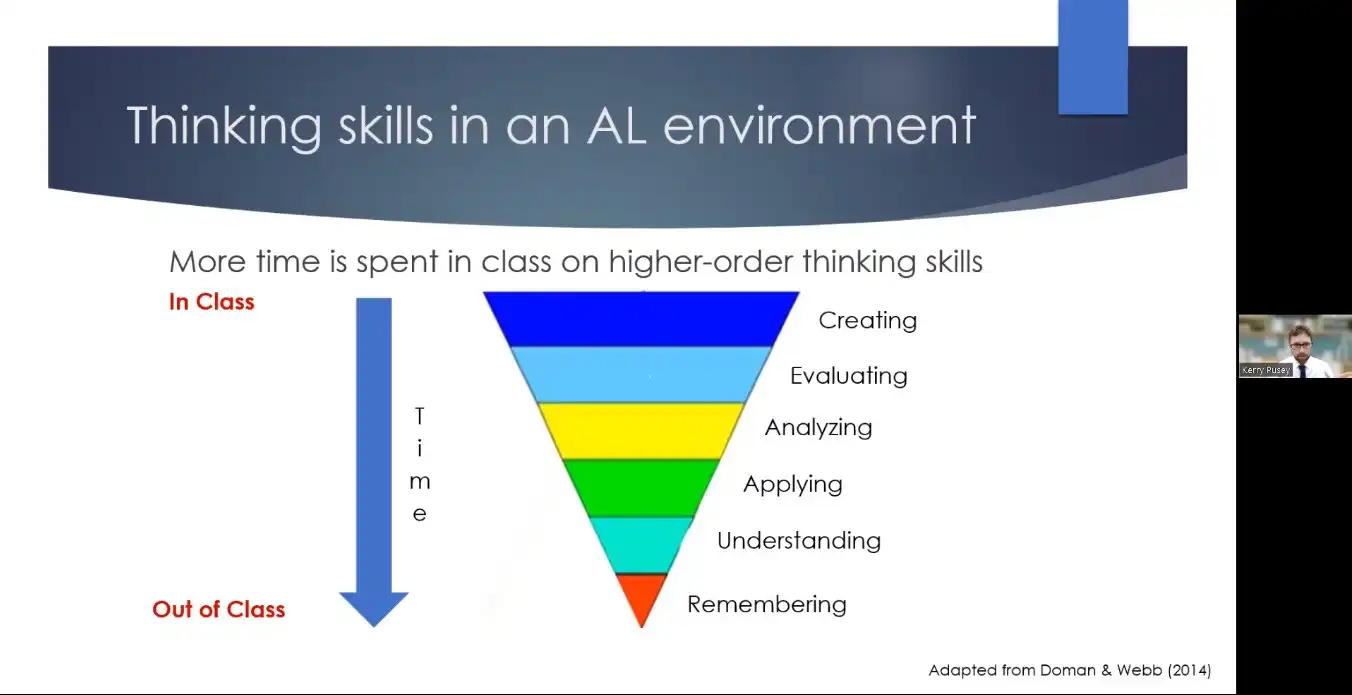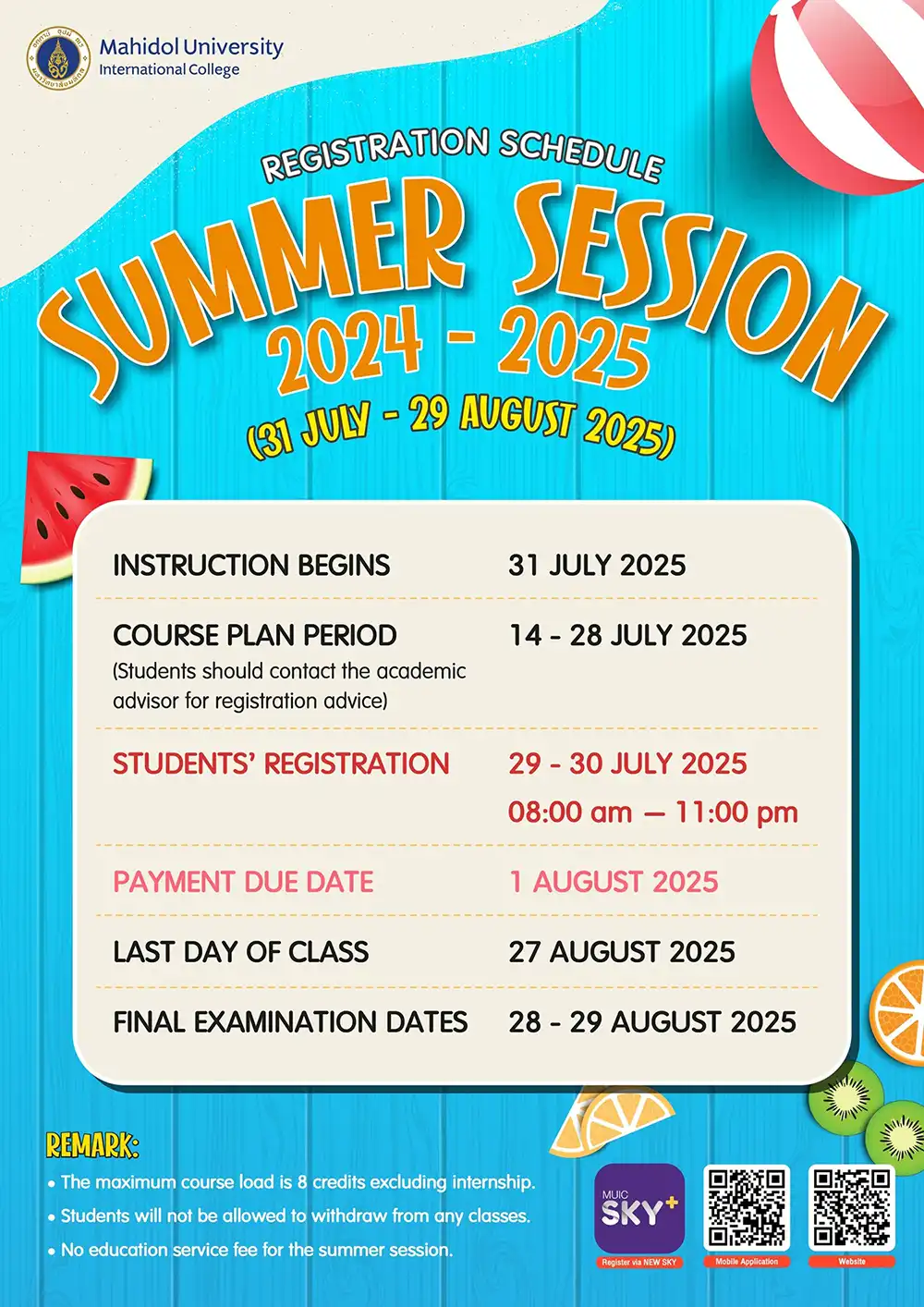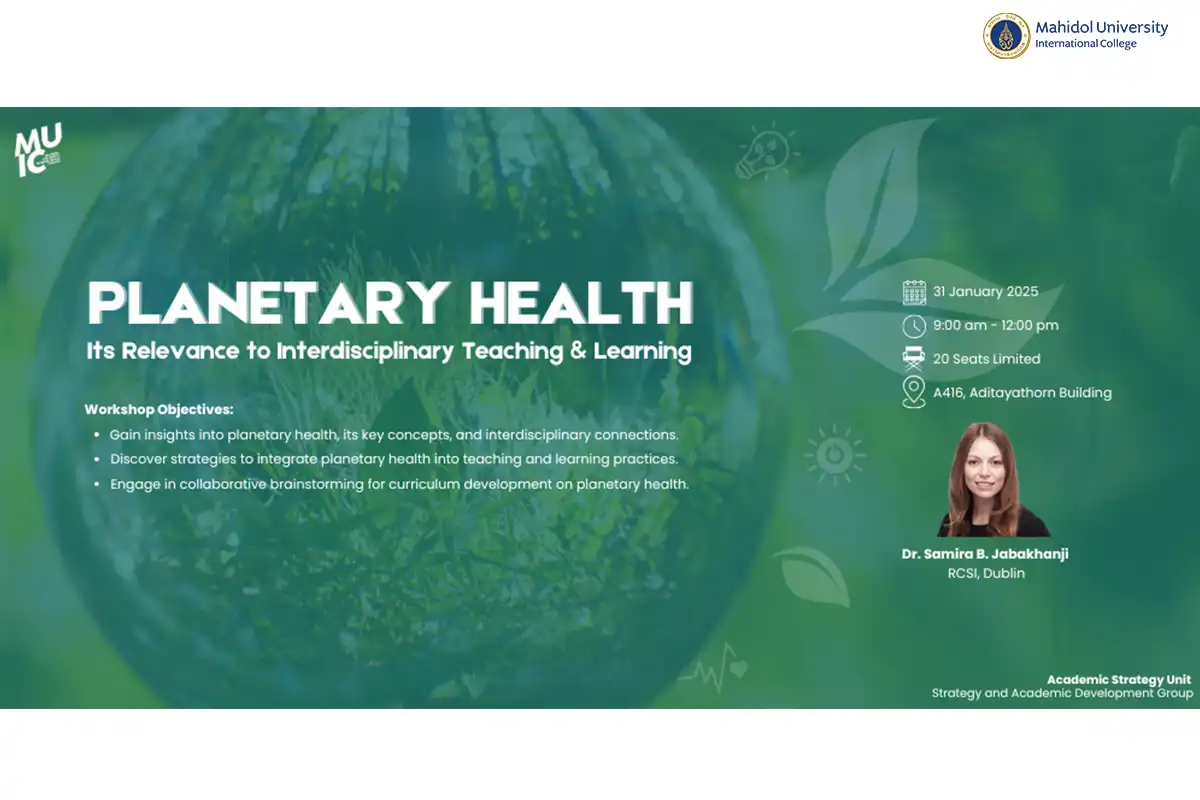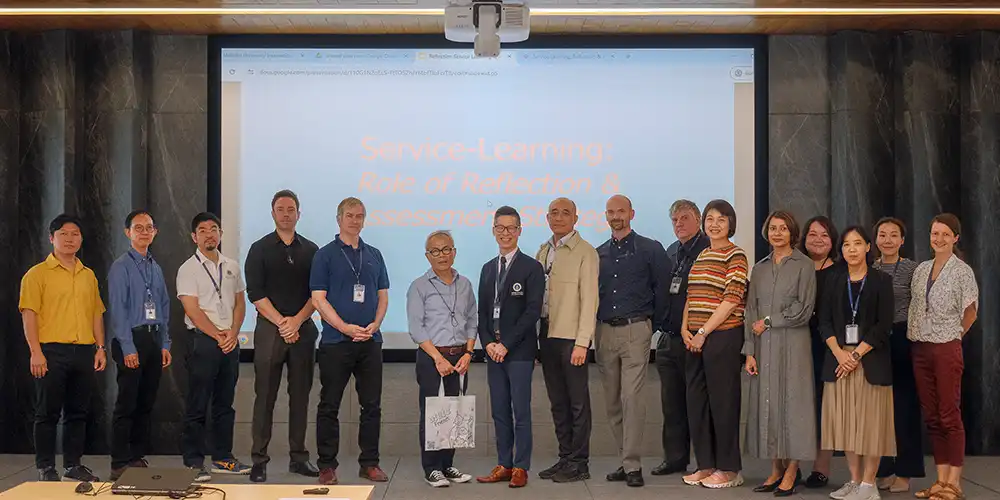Increasing Student Engagement Through Active Learning
July 12, 2023 2023-08-15 4:13Increasing Student Engagement Through Active Learning
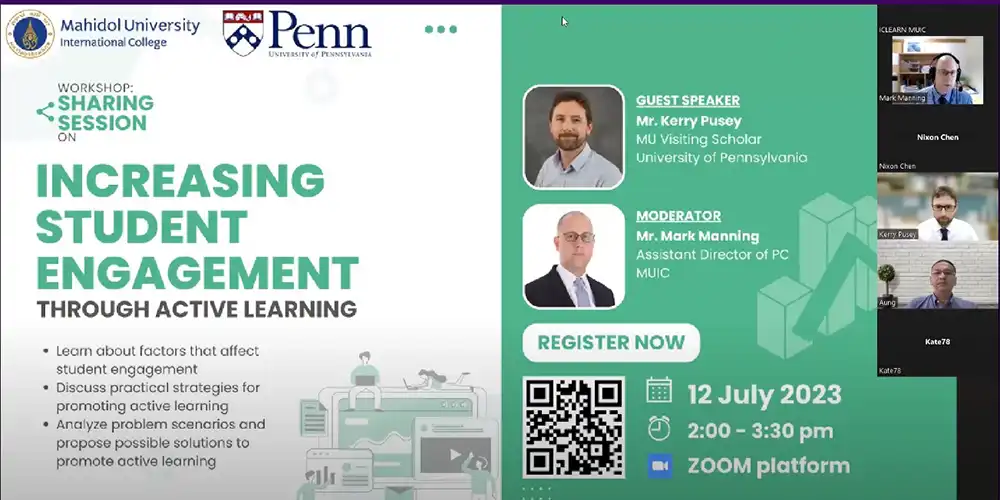
Increasing Student Engagement Through Active Learning
Title: Increasing Student Engagement Through Active Learning
Date and Time: Wednesday, July 12, 2023, from 2:00 – 3:30 p.m.
Conductor: Mr. Kerry Pusey, MU Visiting Scholar, University of Pennsylvania
Moderator: Mr. Mark Manning, Assistant Director of PC MUIC
The OAA Strategy and Academic Development Section held an online session on ‘Increasing Student Engagement Through Active Learning’ to assess its effects on student engagement and learning. Active learning, which includes cooperative learning, experiential learning, problem-based learning, project-based learning, and others, shifts the focus from the traditional classroom to creating an environment and strategies that encourage students to deeply engage with the learning process and actively construct their own knowledge. Active learning puts students in charge of their learning, improving comprehension, retention, critical thinking, problem-solving, teamwork, and communication.
All aspects of student engagement and achievement depend on active learning. Students have to comprehend and acknowledge their position in the educational scheme before teachers may make assumptions or demands regarding class participation to implement this technique properly. Teachers must make their aims and expectations of student participation apparent and assess students’ expectations of them as teachers and students before learning events. To set the course, share personal tales from your own experience or problems with adapting to new norms and expectations at the start of class. This might show students that changing roles is normal.
The goal of active learning is to engage students by making learning relevant and meaningful, developing 21st-century skills, and giving them the mindset and skills for lifelong learning.
